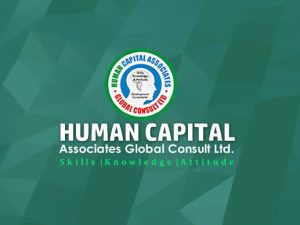Workshop on The Industrial Manager’s Toolkit
March 18 – 22, 2024, 1st Run: Lagos & Port Harcourt
October 28 – Nov. 1, 2024, 2nd Run: Lagos & Abuja
For Tutor -Led Class: 9am – 4:30pm
Workshop fee: N300, 000 per Participant
For online: Delivery via Zoom
Online course fee: N250, 000 per Participant
Program Overview:
In order to succeed in their field, industrial managers must acquire the right balance of knowledge and skills from both a technical and a managerial perspective.
Indeed, their duties do not stop at overseeing the operation and maintenance of their industrial site. In today’s world, they are also expected to effectively manage teams, to ensure the safety of their team members, to improve the quality of the organization’s processes and to stay up to date with environmental standards while complying with budget constraints.
This course provides industrial managers with the knowledge and skills required in six core subject areas to succeed in their role. It includes green sustainability, maintenance management, organization-based maintenance systems, personal effectiveness, quality and process improvement, and workforce training.
For Whom:
This course is designed for mid and senior level managers in industrial facilities. This includes. But is not limited to, facilities such as refineries, distribution centers, construction sites and manufacturing plants
Learning Objectives:
At the end of the program, participants will be able to:
- describe the environmental and cost benefits of green sustainability and apply the relevant standards to their industrial sites;
- optimize maintenance processes through organization-based maintenance including physical assets, employee education and workplace environments;
- improve the performance of industrial teams through effective coaching, delegation, communication and group decision making techniques;
- improve the quality of their processes using six sigma, quality management tools and statistical process controls; and
- create effective workplace by selecting, designing and implementing workforce training programs.
Course Outline:
Day 1: Concepts in green purchasing
- Centrifugal pumps
- Green purchasing
- Energy certification
- Energy standard organizations
- Green building economics
- Green building and renovations
- Green building standards
Day 2: Maintenance management
- Equipment lifecycle
- Types of maintenance
- Inventory of equipment
- Warehousing and logistics
- Preservation of equipment
- Preventive maintenance
- Planning and scheduling
- Organization-based maintenance:
- Introduction to Reliability-Centered Maintenance (RCM)
- Understanding the reasoning and processes behind Total Productive Maintenance (TPM)
- Defining the nine major equipment efficiency and quality losses
- Describe the 5s system
- Identify detrimental work practices
- Determine the impact of 5s on productivity
Day 3: Personal effectiveness
- Benefits of coaching
- The necessity of delegating
- How to delegate
- Recognize different communication styles
- Guidelines for effective communication
- Assets, liabilities and equity
- Auditing and reporting
Day 4: Quality and process improvement
- Balanced Scorecard
- Understanding Lean
- Kaizen
- “Plan-Do-Check-Act” (PDCA) cycle
- The seven philosophies of
Total Quality Management (TQM)
Day 5: Workforce training
- Writing objectives
- Designing a learning strategy
- Learning strategy selection
- Implementing a training program
- Job Performance Measures (JPMS)
- Instructional Systems Design (ISD) models
- Bloom’s taxonomy
- Arcs motivational theory
Training Methodology
Lectures, discussions, exercises, and case studies will be used to reinforce these teaching/learning methods.
Related Courses






